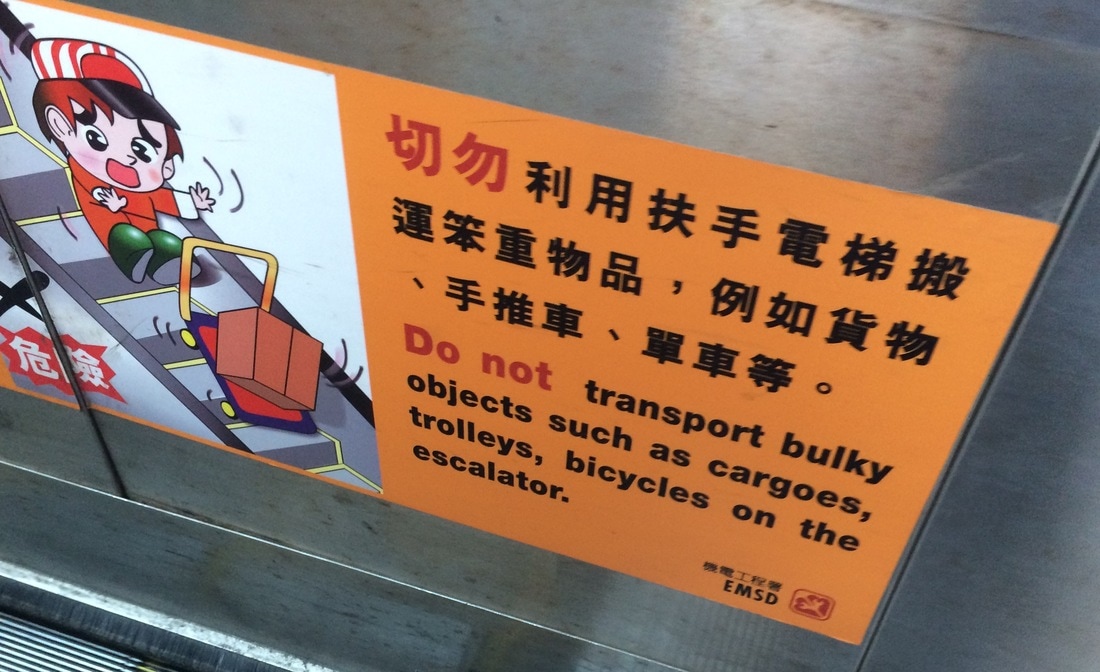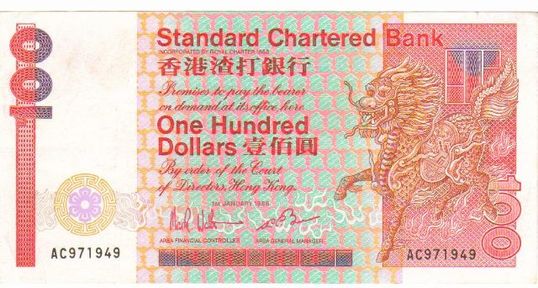|
Signs like this one, reminding readers to 'beware of your belongings', are quite common in Hong Kong. Their purpose is to warn us of the risk of loss or theft, so that we pay more attention to the valuables that we are carrying with us. In Hong Kong, 'beware' is often the generic term used to provide this warning. However, in standard English the word 'beware' has a much more specific meaning and usage. Here is the Oxford online dictionary definition:
3 Comments
Today's post was triggered by seeing large warning notices that the Electrical & Mechanical Services Department (EMSD) has recently begun placing on the entrance to public escalators all around town. This is what they say: This sign uses the word 'cargoes' incorrectly. In this blog post I will talk a little bit about why 'cargoes' is incorrect here, and what alternatives there are. Following on from my last post about English names, this week I want to remind readers of some of the basic differences between English and Chinese names, differences that affect the way you begin emails or letters.
This picture was recently sent to me, with some comments about the oddness of the English structure of the message. It certainly reads rather strangely, but what exactly is the problem?
Members must log on to verify their account within 7 days after receiving their new PIN." So, what's wrong with this commonly-used Hong Kong time expression? Today's blog post offers some insights into how the word 'within' works in English….
This short post is about ways we can present examples in English. In Hong Kong English, users often use the word 'including' to present examples in a way that is incorrect.
Today's blog post is about an unusual aspect of noun use in English that many Hong Kong writers are unaware of. it leads to frequent errors in their writing.
Referring to non-specific persons: should we use ‘he', 's/he', 'he or she', or ‘they’? — PART 215/4/2015 In Part 1 of this post, I mentioned the old-fashioned method of referring to a non-specific person using the pronoun ‘he’ (as shown in sentence 1 below). In this post I want to consider options 2 and 3.
Referring to non-specific persons: should we use ‘he', 's/he', 'he or she', or ‘they’? — PART 18/4/2015 This is the first of a short series of posts on an important topic: when we want to talk about a non-specific person, what pronoun should we use to refer to that person? Here are some of the standard possibilities in English:
Recently [22 March 2015], a columnist in the weekly English column of a local Hong Kong newspaper discussed a common error involving the word ‘worth’. The writer noted that many Hong Kong English users consider ‘worth’ to be a verb, as in the following sentence:
[1] *This painting worths a lot of money. [INCORRECT] The correct way of expressing this sentence in English is: [2] This painting is worth a lot of money. Though the writer was quite right to call this an error, his explanation of why was less convincing. |
About this blogThis blog arises from keeping an eye on English in Hong Kong. I often use signs, notices and advertisements that I see as starting points to write about English issues that commonly challenge Hong Kong writers. Archives
October 2017
Categories
All
|







 RSS Feed
RSS Feed